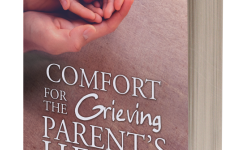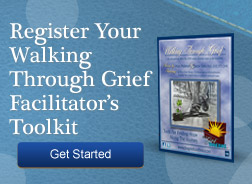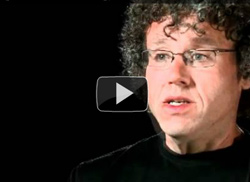Tips for Coping with Anniversary Reactions in Grief
A reader writes: My brother and I were like twins growing up: 14 months apart and inseparable. When I was 25 and he was 26, he died of cancer. At the time, I didn't grieve hardly at all, as I was raised not to talk about intense feelings much. So...I put a lot of these painful feelings away, and didn't realize until this past year, when I was going through other stresses, that there was even something called delayed grief. The pain has been overwhelming. I am going through counseling with a really good therapist who is helping, but I am dreading my brother's death anniversary date that is coming up next month. It is always an extremely difficult month for me. I am especially dreading it this year. I had been doing better lately but the past two days I started crying just thinking about my brother. I miss him so much. He was my best friend in the world and no one can ever replace him. On top of everything else, I have guilt feelings that I didn't do enough to help him get diagnosed earlier. It has been so many years since he died but it feels like just yesterday.
My response: As you have discovered, delayed grief is very real, but once recognized and with support, it can be understood, worked through and managed – so I'm glad to know that you are working with "a really good therapist who is helping" as you come to terms with your brother’s death. I'm sure your therapist will have some suggestions for you as the anniversary date of this death approaches, but for now I'd like to offer the following, taken from my book, Finding Your Way through Grief: A Guide for the First Year. (Note that, although this passage addresses what can happen in the first year of grief, these reactions can occur at any time following a significant loss – even years after the death.)
Setbacks, Aftershocks and the Recurrence of Grief
Setbacks are the unexpected but inevitable frustrations and disappointments you'll encounter in your efforts to rebuild following your loss. They can affect you physically, mentally, emotionally and spiritually. They include statements from family members or friends which, intentionally or not, discourage your efforts. They can be your own internal thoughts, feelings and attitudes which have inhibited and debilitated you in the past: rigidity, closed mindedness, self-doubt, bitterness, anger, disappointment, and the temptation to quit. Or they can be external roadblocks stemming from natural occurrences or from bureaucratic rules and regulations you'll encounter along the way.
Aftershocks or "grief bursts" happen when some of the "down" feelings you've already experienced in grief come at you again several months after the death, or even after a year or more. Sometimes something acts as a trigger and catches you by surprise: a song, a place, a movie or a season, and it's as if you're confronted with the death for the first time, all over again. Painful emotions crash in on you, and it feels as if you're starting the entire grief process anew.
Recurrence of grief is common and normal, but disturbing nonetheless. Although the strong feelings of grief are not continuous, they can return at any time, whenever you are reminded of your loss. They may be especially apparent toward the end of your first year, as you approach the anniversary date of your loved one's death.
As this special date draws near, you may find yourself preoccupied with thoughts of your loved one's diagnosis, treatment and care, remembering your experience of facing a terminal illness together. You may be frightened and confused, all this time expecting that your grief would have been resolved by now and finding instead that if anything your pain has intensified.
Rest assured that what you're feeling is normal and to be expected. You are not losing ground; the progress you've made is real. Getting past this anniversary is but another significant step in finding your way through grief. At this point it is only natural to look back and reflect on what used to be before you can let go of it, move on through your grief, and embrace whatever your life is going to be in the future.
Some mourners make the mistake of measuring the depth of their love by the depth of their pain. They convince themselves that letting go of the pain of loss is the same as letting go of (and forgetting) their loved one. Letting go of what used to be is not an act of disloyalty, and it does not mean forgetting your lost loved one. You will never forget, because a part of the one who died remains in you. There are many things you can do to ensure that your loved one will be remembered, and to give testimony to your continuing relationship with that person. Letting go means leaving behind the sorrow and pain of grief and choosing to go on, taking with you only those memories and experiences that enhance your ability to grow and expand your capacity for happiness.
Suggestions for coping with setbacks, aftershocks, and the recurrence of grief:
- Accept that setbacks are a reality of life over which you have no control. Remember that, although you cannot choose what life has to offer, you can always choose how to respond. The attitudes you bring to life's circumstances are always within your control. You can choose to give up and give in, or you can choose to take charge of your life and keep moving forward.
- Know that aftershocks of grief are normal, and they will pass more quickly each time you experience them. They can be controlled somewhat by controlling the reminders of your loss, either by disposing of them or deliberately seeking them out. Maintain a balance between what you hold onto and what you let go of. Keep what's special or of sentimental value and when you're ready, discard the rest.
- Handle your memories with care. If they are painful and unpleasant, they can be hurtful and destructive. If they create longing and hold you to the past, they can interfere with your willingness to move on. You can choose which parts of life you shared that you wish to keep and which parts you want to leave behind.
- Soothe your pain by thinking of happy as well as sad memories. The happiness you experienced with your loved one belongs to you forever. Hold onto those rich memories, and give thanks for the life of the person you've lost instead of brooding over the last days.
- Build a memory time into the day, or pack an entire day with meaning. It's easier to cope with memories you've chosen than to have them take you by surprise. Immerse yourself in the healing power of remembrance. Go to a special place, read aloud, listen to a favorite song. Celebrate what once was and is no more.
- Know that oftentimes the anticipation of an anniversary date is worse than the actual day.
- Identify those days, events and seasons that are likely to intensify and rekindle your pain, and build comfort and healing into them. Plan what you're going to do ahead of time, even if you plan to be alone. Don't set yourself up for a bad day.
- Let your friends and relatives know in advance which days and events are significant for you. Verbalize your needs and include them in your plans. They may be very willing to help, but need for you to tell them how.
- If you're feeling anxious, confused or immobilized as a certain date or time approaches, get the reassurance you need by returning to your support group or speaking with your bereavement counselor.
- As this first year draws to a close, plan a memorial ritual. Draw on those familiar, comforting ceremonies and activities unique to your religion, culture, traditions, family or way of life. Use this ritual as your rite of passage through grieving to healing, to mark a shift in the way you mourn, or as an official end to this first year of mourning.
- Understand that you're never really finished with loss when someone significant leaves you. This loss will resurface during key developmental periods for the rest of your life. You will have to face it again and again, not as the person you are today, but as the person you will have grown to be in two or five or twenty years from now. Each time you will face it on new terms, but it won't take as long and it won't be as difficult.
© by Marty Tousley, CNS-BC, FT, DCC
Related Articles:







